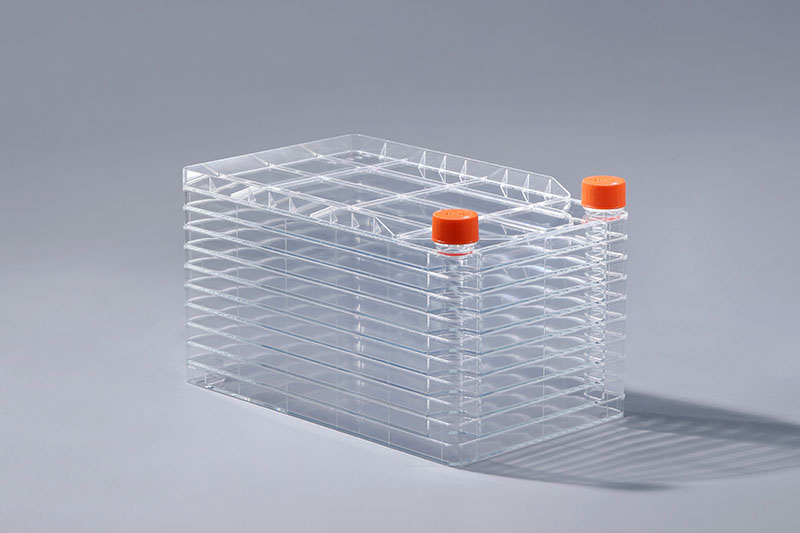Application of cell factories in large-scale cell culture
Large-scale cell culture technology refers to the technology of artificially controlling environmental conditions and cultivating useful microorganisms, animal and plant cells on a large scale with high density. It is the basis for a large number of new cells obtained by gene recombination, cell fusion and other technologies in industrial production such as food and medicine. Cell factories are commonly used consumables in large-scale cell culture.
The common layers of cell factories include 1 layer, 2 layers, 5 layers, 10 layers, 40 layers, etc., which are mainly suitable for the culture of adherent cells. To expand its training scale, it can be achieved by increasing the number of layers. This training method can maximize the utilization of large space, save plant space, and save manpower and material resources.
In industry, cell factories are widely used in mass production of vaccines, monoclonal antibodies or the pharmaceutical industry. Common animal cells that have been cultured on a large scale include chicken embryo fibroblasts, primary hamster kidney cells and other primary cells, as well as human diploid cells, CHO cells, and Vero cells. These cells are widely used in vaccine production, monoclonal antibody preparation, erythropoietin and other product fields.
In addition, large-scale cell culture through cell factories can reduce the number of cell culture devices and reduce the risk of cell contamination. It is an efficient cell culture consumable and is favored by many scientific research institutions and pharmaceutical companies.

评论
发表评论